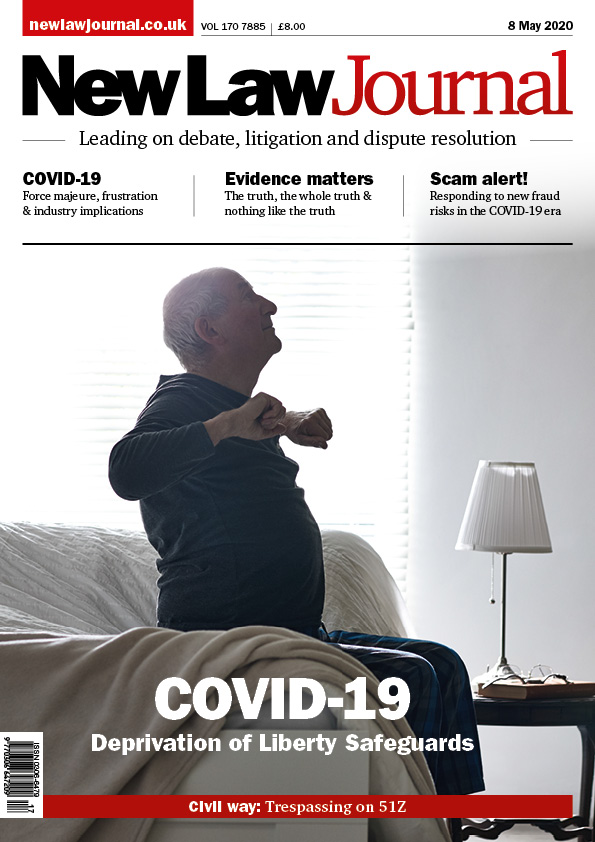THIS ISSUE

Business around the world are dusting off the force majeure clauses in contracts as they seek to deal with the disruption caused by COVID-19, say barristers from Fountain Court
Extra wording has been added to the statement of truth―the verification that a witness or party believes their statement to be true, which is required by many court documents
Amendments to civil legal aid will come into force on 15 May, removing the ‘much maligned gateway’ for advice in discrimination, debt and special educational needs and reinstating face-to-face advice in these areas, as well as a small change to the evidence required to prove a person is at risk from domestic abuse and therefore eligible for legal aid, NLJ columnist Stephen Gold writes in the latest Civil Way
The Legal Aid Agency has amended its arrangements for hardship claims
A rugby spectator who exaggerated his injuries has had 15% knocked off his recoverable costs
In response to the COVID-19 outbreak, the Land Registry is accepting deeds signed using the Mercury signing approach from 4 May.
The Civil Justice Council (CJC) has commissioned an urgent review into the impact of COVID-19 on the civil justice system
Dana Denis-Smith, CEO of Obelisk Support, has written an open letter to general counsel for diversity & inclusion, signed by 27 other female founders of legal services businesses
Judges must be ‘hard-headed’ when deciding which cases to prioritise for remote hearings and which can wait, the senior family judge has said
Law centres and advice charities have been offered a £5.4m boost to help them cope with increased demand for social welfare advice during the COVID-19 pandemic
MOVERS & SHAKERS

Freeths—Ruth Clare
National real estate team bolstered by partner hire in Manchester

Farrer & Co—Claire Gordon
Partner appointed head of family team

mfg Solicitors—Neil Harrison
Firm strengthens agriculture and rural affairs team with partner return
NEWS
Conveyancing lawyers have enjoyed a rapid win after campaigning against UK Finance’s decision to charge for access to the Mortgage Lenders’ Handbook
The Crown Prosecution Service (CPS) has launched a recruitment drive for talented early career and more senior barristers and solicitors
Regulators differed in the clarity and consistency of their post-Mazur advice and guidance, according to an interim report by the Legal Services Board (LSB)
The Solicitors Act 1974 may still underpin legal regulation, but its age is increasingly showing. Writing in NLJ this week, Victoria Morrison-Hughes of the Association of Costs Lawyers argues that the Act is ‘out of step with modern consumer law’ and actively deters fairness
A Competition Appeal Tribunal (CAT) ruling has reopened debate on the availability of ‘user damages’ in competition claims. Writing in NLJ this week, Edward Nyman of Hausfeld explains how the CAT allowed Dr Liza Lovdahl Gormsen’s alternative damages case against Meta to proceed, rejecting arguments that such damages are barred in competition law








